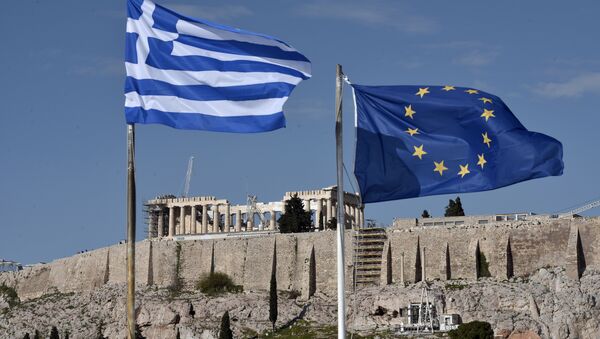"92 per cent of Greek households report having been affected by the economic crisis between 2010 and 2016. It is probably as a result of this dramatic situation that Greece reports among the lowest levels of life satisfaction across the entire transition region," the Bank’s Life in Transition Survey (LiTS) report said.
According to the report, by the end of 2015 the Greek GDP decreased by 26 percent compared to 2008 levels, while the unemployment rates increased by 17 percent, with youth unemployment skyrocketing to almost 50 percent.
The report also revealed that between 2010 and 2016 about 44 percent of Greek households were affected by reduced wages and pensions.
More than 51 percent of Greek families had to reduce the consumption of staple foods and medicines as a result of crisis, while over 94 percent of the respondents reduced the consumption of non-necessities.
"Compared to eastern European households interviewed as part of LiTS II in 2010 (who also reported a deep impact of the recent crisis), Greeks have had to resort to cutting the consumption of necessities, non-necessities and services to a greater extent," the study said.
Life satisfaction among Greek respondents turned out to be rather low, with only 24 percent of those surveyed being satisfied with their life. The optimism for future generations is also limited, with less than 30 percent of respondents believing the next generation of Greeks will have a better life than themselves.
The survey also revealed a widespread distrust of national political institutions in Greece, with some70 percent of those surveyed blaming political parties for the economic crisis.
The third LiTS survey report covered 51,000 households in 34 countries, mainly transition countries in Central and Eastern Europe, with Greece and Cyprus included in the study for the first time.
The Greek debt crisis erupted in 2010 with a number of austerity packages adopted by the parliament and several bailout payments provided by the European Commission, the European Central Bank and the International Monetary Fund. Greece's international creditors signed an agreement with Athens last summer, approving a third bailout package worth about 86 billion euros ($97.3 billion) in exchange for austerity reforms, including pension cuts and tax hikes. The country's government led by Prime Minister Alexis Tsipras pushed ahead with the reforms, and the prime minister has previously stated that he expected the country's GDP to return to growth by 2017.
In October, eurozone finance ministers unlocked a $1.2-billion installment of the bailout after the completion of the first review of Greek reforms. Another $3 billion were unlocked in late October.





